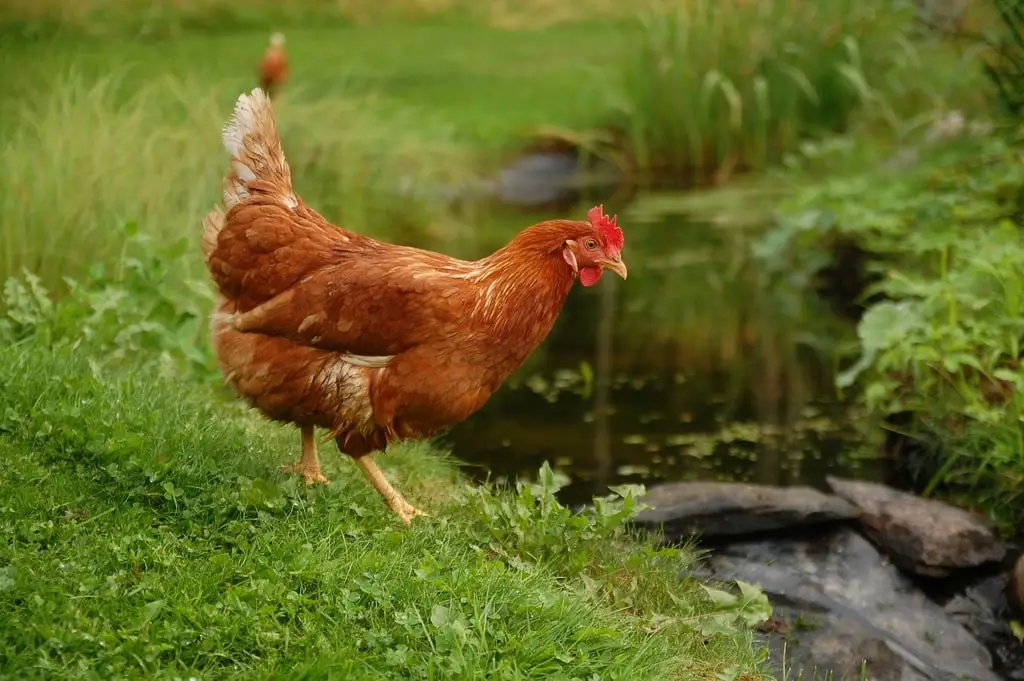How to Store Eggs? (lime water preservation method)
In the world of homesteading, it is often found that the art of egg storage plays a vital role in preserving freshness and maintaining the quality of homegrown eggs. Knowledge of proper egg storage techniques can make a significant difference in the shelf life and taste of the eggs, ensuring that they remain safe for consumption.
In this comprehensive guide, the best practices for storing eggs will be discussed, providing homesteaders with the essential information needed to store their eggs correctly.
The Importance of the Bloom: An Egg’s Natural Protective Coating
The natural protective coating called the “bloom” or “cuticle” is usually present on freshly-laid eggs. This coating serves as a barrier against bacteria, preventing their entry into the egg.
It is because of this bloom that immediate washing of eggs is not recommended. The removal of the bloom can lead to increased susceptibility to bacterial contamination.
Instead, any visible dirt or debris should be gently brushed off with a dry cloth or soft brush, preserving the bloom as much as possible.
When unwashed eggs are stored, room temperature can be considered an ideal environment. A cool, dry place, shielded from direct sunlight, is optimal for maintaining the freshness of unwashed eggs.
It is worth noting that, although unwashed eggs can last for several weeks at room temperature, their freshness will decline over time.
Washing Eggs: When and How to Do It Properly

In some instances, washing the eggs might be necessary due to the presence of dirt or fecal matter.
If washing is required, warm water (slightly warmer than the egg’s temperature) should be used, along with a gentle, food-safe detergent or egg cleaner.
Once the eggs have been washed, they must be dried thoroughly before being stored in a refrigerator. The removal of the bloom during washing necessitates refrigeration to prevent bacterial growth. Refrigerated eggs can last for up to five weeks.
It is important to remember that various factors can influence the freshness and safety of eggs, such as the environment in which they are stored, the health of the chickens, and the cleanliness of the nesting boxes.
Practicing good hygiene and using one’s best judgment when handling and storing eggs is always advised.
Storing Eggs in the Refrigerator: Tips for Optimal Freshness
When eggs are stored in the refrigerator, it is advised to place them in their original carton or an egg tray. The main compartment of the refrigerator should be used for storage, not the door, as temperature fluctuations in the door can negatively affect the egg’s quality.
Consistent temperature is crucial for maintaining the freshness of the eggs.
Another essential aspect of egg storage is the orientation of the eggs. It is recommended that eggs be placed with the pointy end facing down. This positioning helps keep the air cell intact and prevents the yolk from coming into contact with the shell, which can lead to spoilage.
Additional Tips for Prolonging Egg Freshness
Beyond the fundamental storage techniques discussed earlier, there are a few additional tips that can be employed to further prolong the freshness of eggs.
These tips can help maximize the shelf life and quality of homegrown eggs, ensuring a consistently enjoyable experience for homesteaders and their families.
Firstly, it is advised to collect eggs from the nesting boxes regularly, preferably once or twice a day. The frequent collection helps prevent the eggs from becoming soiled and reduces the likelihood of accidental breakage. Additionally, the consistent collection allows for better temperature control, as eggs will not be exposed to extreme temperature fluctuations for extended periods.
Another useful practice is to monitor the cleanliness of the nesting boxes. By maintaining a clean environment for the laying hens, the chances of eggs becoming dirty or contaminated are significantly reduced. Regularly replacing the bedding and cleaning the nesting boxes can have a considerable impact on the overall cleanliness and quality of the eggs produced.
Storing Unwashed Eggs in Lime Water: An Alternative Preservation Method
Using lime water, also known as water glassing, is an age-old preservation technique that can be employed for storing unwashed eggs.
This method, which has been used for centuries, can effectively extend the shelf life of eggs for several months, without the need for refrigeration.
Lime water creates an alkaline environment that discourages bacterial growth, ensuring that the eggs remain safe for consumption.
To store unwashed eggs in lime water, the following steps should be followed:
- Inspect the eggs: Before storing, it is crucial to inspect the eggs for any signs of damage or cracks. Only clean, intact eggs should be used for this preservation method, as damaged eggs can introduce bacteria into the lime water solution.
- Prepare the lime water solution: To create the lime-water solution, mix 1 quart of water with 1 ounce of food-grade hydrated lime (calcium hydroxide) in a non-metallic container. Stir the solution until the lime is completely dissolved. For larger quantities, simply scale up the recipe as needed.
- Place the eggs in a suitable container: A non-metallic, food-safe container with a tight-fitting lid should be used for storing the eggs. Carefully place the unwashed eggs in the container, ensuring that they do not touch each other or the sides of the container.
- Cover the eggs with the lime water solution: Pour the prepared lime water solution over the eggs, making sure that they are completely submerged. A minimum of 1 inch of lime water should cover the eggs. To prevent the eggs from floating, a clean, non-metallic plate or other weight can be placed on top of the eggs.
- Seal and store the container: Once the eggs are submerged in the lime water solution, place the lid on the container and seal it tightly. Store the container in a cool, dark place, such as a pantry or cellar, where the temperature remains stable.
When properly stored in lime water, eggs can last for up to six months or even longer. It is essential to note that the eggs must be thoroughly rinsed and dried before use, as the lime water solution is not safe for consumption.
Additionally, eggs preserved in lime water may have a slightly altered texture, particularly in the egg white.
Despite this, they can still be used for a variety of cooking and baking applications.
Storing eggs in lime water offers an alternative preservation method for homesteaders who want to extend the shelf life of their homegrown eggs without relying on refrigeration. By following the proper techniques, this method can provide a reliable and long-lasting storage solution for unwashed eggs.
Eggs preserved in lime water do not have the exact same consistency as fresh eggs, but they are still suitable for a variety of culinary applications, including baking, scrambling, and boiling. However, there are some differences that you may notice when using preserved eggs compared to fresh ones:
- Texture: The most significant difference between fresh eggs and those preserved in lime water is the texture, particularly in the egg white. The egg whites of preserved eggs may become slightly firmer or more rubbery than those of fresh eggs. This change in texture should not significantly affect the taste or usability of the eggs, but it might be noticeable, especially in dishes where the egg white plays a prominent role, such as poached or fried eggs.
- Baking: Eggs preserved in lime water are generally suitable for baking purposes. While the egg whites might have a slightly different texture, this change is often negligible in baked goods like cakes, cookies, and bread. You may not notice any difference in taste or texture when using preserved eggs in baking recipes.
- Scrambling: Preserved eggs can be used for scrambling, but the texture might be slightly different from fresh eggs. The egg whites might become firmer or more rubbery, but the overall taste should remain largely the same. Some people might not notice any difference, while others might prefer the texture of fresh eggs for scrambling.
- Boiling: Boiled preserved eggs will have a somewhat different texture, especially in the egg white. The egg white might be firmer and slightly rubbery, but the taste should still be enjoyable. For hard-boiled eggs, the texture difference might be less noticeable, but it might be more apparent in soft-boiled eggs.
In summary, eggs preserved in lime water can be used for various cooking and baking applications, but they might have a slightly different texture compared to fresh eggs. Depending on your personal preferences and the specific dish you are preparing, you may or may not notice a difference. It is important to remember that while preserved eggs are a viable option for many recipes, fresh eggs may be more suitable for dishes where texture plays a critical role.
Recognizing the Signs of a Bad Egg
Despite following best practices for egg storage, it is still essential for homesteaders to be able to recognize the signs of a spoiled or unsafe egg.
Familiarity with these indicators can help prevent the consumption of bad eggs, ensuring a safe and enjoyable experience for all.
One common method for determining the freshness of an egg is the float test. To perform the test, the egg should be placed in a bowl of water. A fresh egg will typically sink and lay flat on its side, while an older egg may stand upright or float to the surface. Although the float test can provide some indication of an egg’s freshness, it is not foolproof and should not be relied upon as the sole determinant of an egg’s quality.
Other signs of a bad egg can include a foul odor, a change in the appearance of the egg white or yolk, or the presence of mold. If any of these signs are observed, it is recommended that the egg be discarded and not consumed.
Conclusion
By following the guidelines discussed in this article, homesteaders can ensure that their eggs are stored properly, preserving their freshness and quality.
The understanding of the bloom’s importance, the proper washing technique, and the optimal storage environment are all critical components of successful egg storage.
With these best practices in mind, homesteaders can enjoy the delicious taste and numerous benefits of their homegrown eggs for weeks to come.
Share this content:


